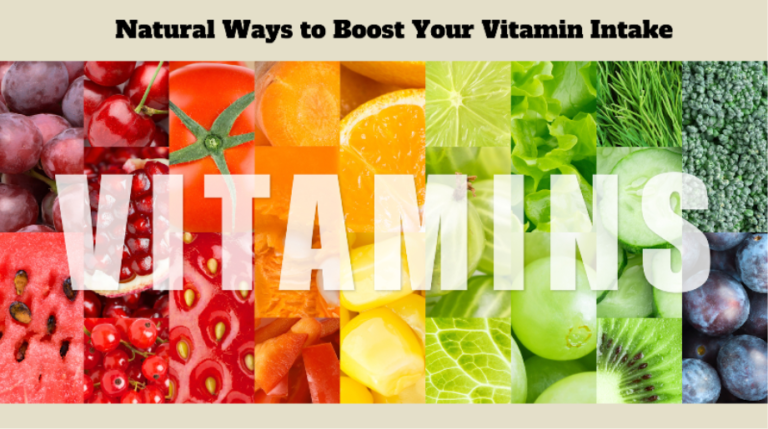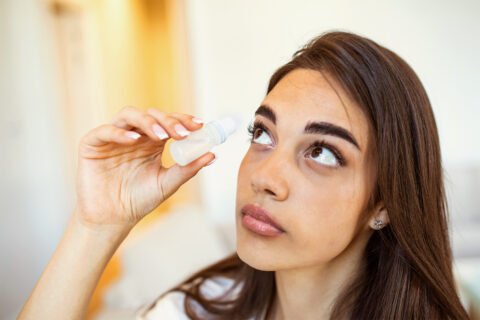It is hard to make sure we are taking the right nutrients in today’s fast-moving world. Without the right vitamins we cannot be healthy; how then do we ensure that their intake is natural? Here we’ll be looking at some effective ways you can increase your vitamin levels without just resorting to supplements.
1. Dietary Adjustments
Our primary source of vitamins is the food that we eat. If we make wise diet choices, we can increase our intake of vitamins by a significant margin. Inclusion of these items in your diet will guarantee you a broad spectrum of vitamins. They are as follows:
- Spinach, kale, and broccoli are rich in vitamins A, C, E, and K. They also have some iron, magnesium, or calcium. Consumption of these leafy greens on a routine basis can lessen chances of type 2 diabetes and heart disease, studies reveal.
- Almonds, cashews, walnuts, and pumpkin seeds are great sources of B vitamins, magnesium, and selenium. They are also essential for fat intake which is critical for absorbing vitamins.
Did you know? Eating a few nuts every day would reduce your bad cholesterol levels (LDLs) hence heart disease risk will also be reduced.
2. Strategic Food Pairing
The sources of vitamins are just not only food but rather how they are combined.
Nutrient Absorption
Try these food pairings:
- Pair iron-rich plant foods like spinach with vitamin C sources such as citrus fruits. You should consume these two foods together because research has shown that they can help you absorb more iron.
- Combine vitamins A, D, E, and K with fats from foods like avocado or olive oil. These vitamins need fat to be properly absorbed by your body. For those who are taking supplementation, some experts recommend a combined vitamin d +k supplement for optimal absorption and utilization.
3. The Sunshine Vitamin
Even though it is technically not a source of diet, sunlight is vital in the creation of vitamin D. If you want to make enough vitamin D content in your body, the middle of the day is spent outside. Hence, a weekly intake should not exceed two to three 10-30 minute sessions under the sun.
Caution: Prevent harm to your skin from too much sun exposure and excessive ultraviolet ray exposure by balancing them.
4. Include Fortified Foods
Fortified foods can be a convenient way to boost vitamin intake, especially for those with dietary restrictions.
Boost Daily Intake
Fortified foods are enriched with specific vitamins and minerals to address common nutritional gaps in modern diets. Here are some excellent options to consider:
- Fortified with the vitamins D and B12, these alternatives to dairy are almond, soy, and oat milk. They can be helpful mainly to lactose intolerant people or vegans, in particular.
- A variety of B vitamins, iron, and also sometimes vitamin D can be found in many breakfast cereals. When purchasing them, choose whole-grain varieties to obtain maximum nutritional advantages.
- Fortified calcium and vitamin D orange juice are marketed by several companies to allow for easy intake of these nutrients by people who do not take dairy products.
- Folic acid, which is essential for growth as well as cell division in our bodies, is added by certain manufacturers to their items.
Did you know? Consuming sufficient amounts of fortified foods can help in meeting one’s daily needs for vitamins and minerals. To be precise, a single serving of fortified cereals can supply up to 100% of the suggested daily consumption value of multiple B vitamins.
In choosing fortified foods, always scrutinize the nutrition facts to make sure they contain reasonable levels of the needed vitamins minus too much added high-fructose corn syrup or harmful fats.
5. Utilize Supplements Wisely
While natural sources are ideal, supplements can play a role in maintaining optimal vitamin levels.
Supplementation Strategy
Consider supplements for:
- Vitamin D
- Vitamin B12
- Iron
Remember to always consult healthcare providers before starting a supplement regimen because they will identify if you need them and also guide you on how to take them better. In elderly people, taking vitamin D supplements can minimize the chances of falling and breaking bones.
6. Healthy Snacking
Dietary intake of vitamins can be greatly enhanced by clever snacking.
Nutrient-Dense Snacks
Keep these vitamin-rich snacks on hand:
- Mixed nuts and seeds
- Carrot sticks with hummus
- Hard-boiled eggs
- Fresh fruit
Consuming nutrient-packed snacks could maintain sugar levels throughout the day while avoiding too much eating during normal eating moments.
7. Meal Prepping
A good advice for maintaining regular well-balanced food consumption over seven days would be to prepare in advance what is needed for each day. Cooking foods beforehand makes one stay away from other time-consuming unhealthy alternatives.
Plan Ahead
Here’s how to make meal prepping work for you:
- Dedicate some time each week to plan out what you will eat. Concentrate on getting different kinds of high-nutrient foods into your diet to guarantee that all essential vitamins are being met.
- Produce great quantities of nutrient-dense foods that can be conveniently divided into smaller portions and are storable, such as roast a plate of mixed vegetables (bell peppers, broccoli, sweet potatoes) with Vitamin C, A, and B6. Prepare a large pot of quinoa or brown rice for B vitamins and minerals. Roast some chicken breasts for lean proteins and B vitamins.
- Make it simple to add them to your meals this week by cleaning, cutting, and keeping fresh fruits or veggies in the store.
- Get grab-and-go meals out divider into their components for the prepared meals.
- Eat some healthy snacks including mixed nuts, and hummus accompanied by sliced veggies as well as homemade energy bars instead of choosing less healthy alternatives.
Prepping your food beforehand not only helps you save time but also allows for healthier eating habits and less wastage in terms of consumed foods.
According to research which was published by the American Journal of Preventive Medicine, time spent preparing it at home contributes positively towards increased diet quality such as high intake levels of fruits and vegetables.
8. Stay Hydrated
For the optimal performance of vitamins in our bodies, we need to drink enough water. To ensure someone is well hydrated:
- Aim to drink enough water to maintain a light yellow urine color.
- Consider your activity level and climate – you may need more water if you’re active or in a hot environment.
- Don’t wait until you feel thirsty to drink water; thirst is often a sign you’re already mildly dehydrated.
- Incorporate hydrating foods like cucumbers, watermelon, and zucchini into your diet.
A report disclosed that mild dehydration can impair cognitive function as well as mood. According to this report, only a 1.36% fluid deprivation is sufficient to affect a person’s mood and concentration while also increasing headache frequency.
9. Consider Animal-Based Sources
While plant-based diets can be very healthy, animal products often provide more bioavailable forms of certain vitamins.
Bioavailable Vitamin Sources
Consider incorporating:
- Fatty fish (for vitamins A and D)
- Eggs (for vitamin B12)
- Dairy products (for calcium and vitamin D)
These sources often provide vitamins in forms that are more easily absorbed and utilized by the body.
FAQs
1. What are the best natural sources of Vitamin D?
The healthiest way to get Vitamin D is from exposure to sunlight, but you can also get it from dietary sources. Options as good as these last ones are fatty fish like salmon and mackerel as well as fortified foods like plant-based milk and cereals that contain vitamin D.
2. How can I enhance the absorption of iron from plant-based foods?
Combine plants with high iron content with foods rich in vitamin C. You could sprinkle slices of strawberries on your spinach salad or squeeze some lemon juice into the lentils. By doing this, you will be increasing your absorption of iron.
3. Are vitamin supplements necessary if I eat a balanced diet?
To some, a balanced diet is enough. However, there are some conditions where a person will need to take supplements that are lacking in the body through the food they consume. You must go see a professional in health on whether you require supplements that suit your requirements or not.





